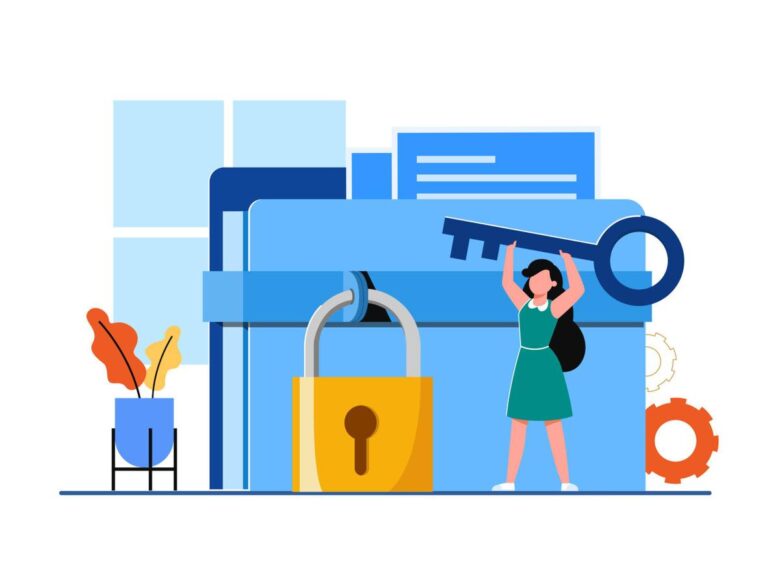Navigating the internet securely is challenging today. You might end up spilling all your personal information into the wrong hands. For example, when you submit any document that contains information that defines your identity or credit card details gets hacked then you will lose all your private details.
Online fraud and data theft is a common risk today, as it has already damaged numerous small-medium businesses. Moreover, individuals have also fallen victim to such attempts.
At times, taking online security non-seriously costs you an arm and leg. Here, I would like to mention Trojans that capture credentials.
You might find your bank balance zero just because you have entered your credentials online somewhere, afnd a data-stealing Trojan captures it and steals all your money without you knowing about it.
The risks are endless and cause harm in various manners. Therefore, it’s significant to take measures that ensure your online security.
This blog aims to feature simple steps that help you reclaim your online safety. Remember, these steps are easy to remember, and so to implement. Make sure to make the most of these steps to increase your online security.
Here’s How to Stay Safe Online with Simple Security Steps
Install Security Updates Regularly
It’s foolish to leave yourself vulnerable! Remember, the first step to a safe online experience starts with a security update. Always, update your devices, and operating system. You can go to your device settings, and enable automatic updates. It will boost your system against the new viruses that might attack your data and device. A regular update provides all the essential programs to your device that are needed to fight against the latest malware or threats.
Install an Antivirus Software
Install antivirus software with ransomware protection. In case, if you don’t find the one then you can also separately install both programs. The thing about viruses and malware is that you cannot identify them. Malware usually tricks users and then a single click just ruins your data.
Here comes an antivirus program that identifies malicious sources and notifies users then and there. However, you just have to make sure to always respect the security warnings coming from your antivirus program. Also, don’t just install and forget the software, keep updating it to stay secure online.
Enable Two-Factor Authentication for Accounts that Matter
Enabling two-factor authentication for accounts like Gmail, Facebook, Twitter, iCloud and GitHub is a must today. The two-factor authentication ensures maximum online protection and stops intruders from accessing your accounts to steal crucial data.
Two-factor authentication gets you an added layer of security. It prevents hackers from logging in to your account even when they have your password. If someone tries to access your account, the two-factor authentication will inform and verify you by sending you a 6-digit code on your device or phone.
Use A Different Password for Every Account
Your password plays a pivotal role in your online security. Using the same password for every account can be extremely dangerous at times. For example, if a hacker successfully hacks your email provider, and steals your username and password that. He will try the same combination on your other accounts and will access it easily.
Therefore, it is highly suggested to always use unique and different passwords for each account. If you find it daunting to create a unique password, then you can also use a password manager for each site and the rest of the work will be done by your chosen password manager service.
Update your Privacy Settings
Your social media accounts often contain most of your personally identifiable information i.e. number, name, address, location, and pictures. Always make sure to update your privacy settings on the social profile and only share it with the intended users. Keeping your stuff in the public can help hackers steal your data for their nefarious purposes
.
Maintain Periodical Data Backups
The safest option to avoid accidental data loss is to maintain a periodic backup of your data. Backing up data and crucial files helps you stay safe against possible cyber-attacks. If you have data related to business, then the best option to go with is Cloud backup. Having a complete backup of your important stuff makes you feel confident as you never have to provide heavy ransomware in case of accidental data inaccessibility.
Use a VPN
A VPN or a virtual private network is the need of the hour. Post Covid-19, it seems that the rate of cyberattacks has been drastically increased. Vice versa, the sale of VPN. A VPN service encrypts your traffic and routes it using its intermediary VPN servers. In this way, all your traffic remains anonymous from the eyes of intruders and you can safely continue using the internet.
If you don’t want to regularly use a VPN, make sure to connect it while using a public Hotspot, online shopping, and online banking.
Be Careful of Email Attachments
Always carefully look at the name of the sender/subject and if you find it weird or unknown then do not open it. you can directly trash emails from such sources. As 94% of security malware attacks occur through the use of malicious emails. Also, pay heed if any of your services such as a bank ask for the credentials. Never share your credentials since no service will ever ask you for that. You can also call your bank or another respective service to verify.
Conclusion
Coming to the end of this blog, I would like to say that it’s not sufficient to only lecture about online security. As a user, it’s your responsibility to use the necessary Security services and tools to protect yourself in the best way possible. Hopefully, you found these tips useful and will share them with others.

Leave a Reply